Select Cancer Research Achievements – 2020 SNAPSHOT
Made Possible by National Foundation for Cancer Research Supporters
NFCR provides outstanding researchers with the vital seed funding they need in their laboratories to pursue the next advancement in cancer research—more than $390 million since 1973. NFCR-funded scientists are leading the way into a new era of cancer prevention, detection and treatment. We are committed to helping scientists translate promising cancer discoveries into cures by funding their innovative research.
If you prefer to download this as a PDF, please click here.
Supporter’s Spotlight
“Years ago, I realized that NFCR is an organization whose mission overlapped with mine: Finding the best treatments targeted for each cancer. I hope that one day, cancer can be treated as a chronic disease. Precision medicine makes more sense, and I like the way NFCR scientists are looking for new, nontoxic treatments and cures to help people live longer, healthier lives. I left a gift to NFCR in my will to help carry our vision forward and leave a legacy for future generations. “—Marilyn W., Eugene, OR
“When I heard how NFCR originated, I said ‘Bravo – for the American people for the grassroots support of NFCR.’ I’ve lost many loved ones to cancer, including close relatives and extended family. Although I haven’t had cancer myself, I’ve supported NFCR for 25+ years because research is critically important to all of us.” —Bill Tost, New York, NY
 New Treatment for Childhood Cancer
New Treatment for Childhood Cancer
Lack of therapies made specifically for young patients forces pediatric oncologists to use adult cancer drugs. In addition to debilitating side effects that can last a lifetime, there are many forms of childhood cancer whose outlook is poor. Unfortunately, financial investment to develop specific pediatric cancer drugs has been dismal.
NFCR’s AIM-HI Translational Research Initiative supports a pipeline to develop treatments for the most common pediatric cancers with the worst outcome. Volasertib is the pipeline’s first drug and will soon reach clinical trials to treat rhabdomyosarcoma, a rare and deadly childhood cancer affecting 450 new patients yearly.
Recently, the FDA granted Rare Pediatric Disease Designation to volasertib which will fast-track the drug approval process.
The FDA also awarded volasertib the Orphan Drug Designation (for diseases that affect less than 200,000 individuals) that provides tax credits to reduce clinical trial costs and a waiver of new drug application fees – saving developers of volasertib nearly $2.9 million dollars in 2020.
These benefits will save precious time and money for patients, doctors and drug developers. Your commitment to funding this unmet medical need for better treatments is making a difference in the lives of children!
RESEARCH HIGHLIGHTS MADE POSSIBLE WITH YOUR SUPPORT
Botanical Drug Reaches Patients in Clinical Trials
Over two decades of funding from NFCR supporters helped Yung-Chi Cheng, Ph.D. and his team develop YIV-906, a botanical drug with multiple anti-cancer properties that enhance immunotherapy and chemotherapy. NFCR’s AIM-HI Translational Research Initiative support facilitated the translation of YIV-906 to reach the clinical stages.
Now, a global clinical trial is treating liver cancer patients with YIV-906 combined with a frontline drug. Since YIV-906 also protects the gastrointestinal tract from harsh side effects of many therapies, the botanical drug should alleviate adverse effects of the frontline drug that has caused many patients to discontinue its use.
With success in final phase clinical trials, YIV-906 could become the first U.S.-approved botanical cancer drug— a remarkable achievement.
Halting Spread of Pancreatic Cancer
Daniel A. Haber, M.D., Ph.D. identified a pancreatic cancer gene that drives cancer cells to spread. Scientists have not had much success identifying genes and treatments to stop spreading cells even in early stages of pancreatic cancer. His team’s discovery will launch the development of effective therapies for patients with pancreatic cancer and many other cancers.
Racial Disparity Research in Lung Cancer
Wei Zhang, Ph.D. found African American lung cancer patients have different mutations in key cancer-related genes than Caucasian patients, contributing to the increased incidence and lower survival rates in African Americans. The Zhang team won a larger national grant to study more patients, which may lead to life-saving treatments to reduce racial disparity in lung cancer survival rates
Predicting Why Cancer Spreads in Some Patients
Danny Welch, Ph.D. is finding variabilities in the cell part that produces our body’s energy, possibly explaining why cancer spreads in some patients but not in others. This may partially explain racial disparities in cancer rates and severity. His team’s research suggests a simple blood test could guide doctors to further treat patients whose cancer may spread, and spare patients at low risk from undergoing treatment side effects.
Propelling Development of a New Immunotherapy
With NFCR discovery research funds, Paul Fisher, M.Ph., Ph.D., advanced his powerful immune-stimulating agent as a new treatment to stop the spread of different types of cancer. NFCR’s AIM-HI Translational Research Initiative awarded additional support to bridge the gap between discovery research and expensive clinical drug development required for FDA approval. This year, the AIM-HI funds were matched from another non-profit. Together we are propelling research forward, giving patients new hope for a cure.
Accolades for NFCR Scientists
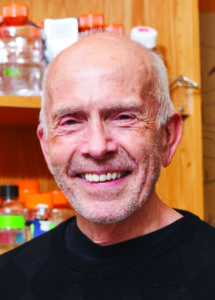
The Achievement Rewards for College Scientists Foundation (ARCS), San Diego chapter, presented the prestigious Scientist of the Year Award to Dr. Paul Schimmel. He was recognized for his groundbreaking research on how cells process genetic information into proteins. His discovery of a DNA sequencing method was celebrated as one of four key developments that launched the human genome era; revolutionizing diagnosis, prevention, and treatment of cancer. Dr. Schimmel’s discoveries have formed numerous biotechnology companies whose medicines have saved hundreds of thousands of lives. Scripps Research, San Diego
2020 Szent-Györgyi Prize for Progress in Cancer Research
Dr. Susan Band Horwitz received NFCR’s coveted Prize for her seminal and extensive achievements having a lasting impact in saving patients’ lives. Deciphering how the drug Taxol works led to better treatment for more than a million breast, ovarian, lung and pancreatic cancer patients worldwide. She also identified how other natural product anticancer drugs work and how resistance occurs. Long-term NFCR supporters, who generously contributed over $1.5 million dollars, were instrumental in helping Dr. Horwitz’s research reach fruition. Albert Einstein College of Medicine
Launching New Research Program: Restoring Sight for Eye Cancer Patients

Cancer can damage the retina and cause blindness. With your support, NFCR is funding pioneering research being conducted by two ophthalmologists, Dr. Jean Bennett and Dr. Katherine Uyhazi. Dr. Bennett developed the first FDA-approved gene therapy for a genetic disease, restoring retinal genes and vision in childhood blindness! Together, Drs. Bennett and Uyhazi will now use both gene and cell replacement therapy, two necessities to restore critical retinal components damaged in eye cancer. Your support will impact eye cancer patients as well as those with other eye diseases, giving new hope that their sight may be saved.
Women Researchers Accelerating New Therapy Development


NFCR’s AIM-HI Translational Research Initiative provides the critical funding needed to accelerate promising discoveries to clinical stages and benefit patients. One of its focused areas is to amplify women in oncology who are entrepreneurs and need funds to accelerate their innovative advancements in cancer care to the market.
On September 24, 2020, the inaugural Women’s Venture Competition was held virtually to connect women researchers from around the globe. An esteemed panel of cancer research leaders selected two semi-finalists from a pool of more than 40 applicants: Stacy Blain, Ph.D. and Manijeh Goldberg, Ph.D. Dr. Blain is developing novel treatments to address drug resistant breast cancer while Dr. Goldberg’s focus is innovative immunotherapy for oral cancer.
NFCR is proud to be a partner organization for this event, supporting and amplifying the contributions of women researchers.
Unique Clinical Trial Gives Hope to Brain Cancer Patients
A revolutionary clinical trial model, GBM AGILE, is now available to treat patients with the deadliest brain cancer, glioblastoma (GBM). Patients who have not had a new effective treatment in decades, now have hope for survival.
GBM AGILE’s unique design surpasses standard trials to efficiently evaluate multiple new drugs and drug combinations simultaneously. Benefits include lower cost, reduced time, and fewer patients required to evaluate potential new therapies.
Two more experimental therapies will soon be available for a total of three experimental “treatment arms”. Patients can now be treated at 31 U.S. cancer centers with more than 40 trial sites opening soon in the U.S. and Canada. Trial expansion in Europe and China is underway. Over 300 patients have already been screened for trial eligibility, a much higher rate than expected.
NFCR is a pioneer and founding supporter of GBM AGILE, as well as a strategic partner of the Global Coalition for Adaptive Research (GCAR), the official nonprofit sponsor of GBM AGILE.
This uniquely designed clinical trial platform is now being utilized to rapidly test new treatments for ovarian cancer and COVID-19.
 Create a Lasting Legacy
Create a Lasting Legacy
Make a lasting impact that will benefit your loved ones and future generations by supporting cancer research. A beneficiary designation is a simple and affordable way to support Research for a Cure. You can easily designate NFCR as a beneficiary in your estate plans or choose one of the options listed below. Consult your financial adviser to maximize tax planning opportunities.
Here are a few ways you can leave your legacy and fund cancer research in the future:
Wills
Gifts left in a will can include cash, securities, or property through a donor’s estate plans
Charitable Gift Annuities
Gifts providing income for life with guaranteed income to a donor with a portion eligible for a tax deduction
Retirement Account
Including through a 401K, 403b, traditional IRA or Keogh plan through making NFCR the beneficiary of a portion or the entire plan
Residence or Vacation Home
Through Retained Life Estate for the life of a donor while receiving a tax deduction for the remainder value
Life Insurance
By transferring ownership of whole life or universal life policy with cash value to NFCR. Policies transferred have cash value eligible for a tax deduction
Trusts
Charitable remainder trust or charitable lead trust
Contact Brian Wachtel, NFCR’s Executive Director, at 301-961-9159 or bwachtel@nfcr.org to start planning a legacy gift to support cancer research today
Cancer and COVID-19
- Cancer screenings are critically important, especially for those with a personal or family history of cancer.
- Regular cancer screenings are highly recommended, and should not be postponed during COVID-19. Early detection is key to long-term survival.
- It is important to take extra precautions in hygiene, social distancing, maskwearing, and to get sufficient rest and proper nutrition.
- Continue regular physical check-ups with your medical provider. Many cancers, when detected early, can be successfully treated.
- NFCR is helping the cancer community stay informed, prepared, and protected during a challenging time which will be overcome—together.
Please visit our COVID-19 Resource Center at NFCR.org.
$100 Performs 1 biopsy from a patient for tests and analyses
$250 Supplies 1 case of lab dishes to grow cancer cells to identify tumor markers and test effectiveness of new drugs
$500 Allows 1 antibody test to determine if tumor cells have a drug resistance marker
$1,000 Performs genomewide analysis in 1 tumor sample to develop targeted and personalized cancer therapies
$2,500 Tests effectiveness of natural product drugs in cancer cells resistant to standard drugs
$5,000 Performs gene identification on biopsy samples from 3 pancreatic cancer patients
Thank you for your support
National Foundation for Cancer Research
a 501c(3) tax-exempt charity (Tax ID: 04-2531031)
5515 Security Lane, Suite 1105, Rockville, MD 20852
NFCR.ORG | 1-800-321-CURE (2873)



 New Treatment for Childhood Cancer
New Treatment for Childhood Cancer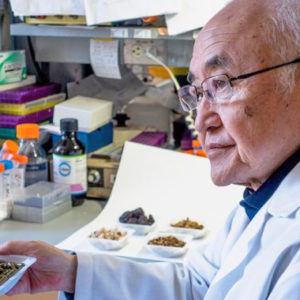
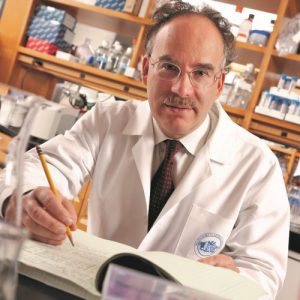
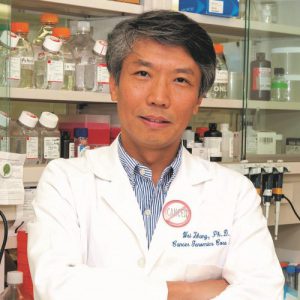
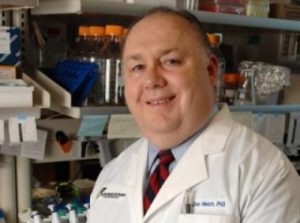

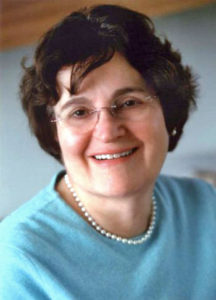

 Create a Lasting Legacy
Create a Lasting Legacy






